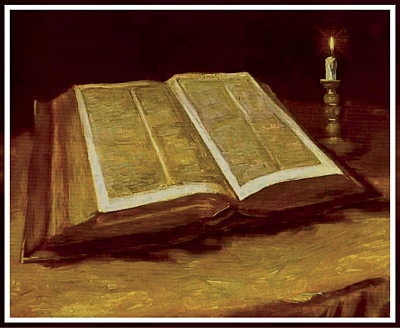The true God does not stand aloof or at a distance from His people. He wants us to know Him intimately—Who He is and what He will do for us. That’s why He gave us His Word. The Word reveals the heart of God and answers every important question in the heart of man. A question we might have is, Can and will God bring healing? One title of God answers that question. It is Jehovah-ropheka.
This title of God, Jehovah-ropheka, has a single use in the Bible. Ropheka is a form of the word rapha. Where the word rapha occurs, Jehovah can at times be seen in the surrounding context. Looking at the single occurrence of Jehovah-ropheka and some occurrences of rapha in relation to Jehovah will help us gain understanding of God’s healing nature.
The name Jehovah indicates God’s covenant relationship with those He has created. God can be trusted to keep His promises and covenants. He has committed Himself to them. Rapha is a Hebrew word meaning “to heal.” This word tells us a function to which God has committed Himself. Let’s look at the only use of Jehovah-ropheka in the Bible.
Exodus 15:26:
And [the Lord] said, If thou wilt diligently hearken to the voice of the Lord thy God, and wilt do that which is right in his sight, and wilt give ear to his commandments, and keep all his statutes, I will put none of these diseases upon thee, which I have brought upon the Egyptians: for I am the Lord that healeth thee [Jehovah-ropheka].
Moses had just led the children of Israel out of the bondage of Egypt, and God wanted them to experience all His blessings, including health. He knew that His people, living in this world, would need healing at times. So the Lord told them in this verse to do His Word above all else and to keep His statutes, which included principles of hygiene and other physical practices for staying healthy. He wanted them to know and do what brings health, to know and avoid what takes away health, and to clearly have in mind that He is the sole source of all true healing. Jehovah-ropheka is man’s solution for sickness, injury, weakness, and instability.
The context of this record in Exodus further adds to our understanding of Jehovah-ropheka. Israel had been enslaved in Egypt for many years, and God sent Moses to free them. The night before Moses led them out of Egypt, the Israelites were to sacrifice a lamb—the Passover.
Exodus 12:3,6-8:
Speak ye unto all the congregation of Israel, saying,…they shall take to them every man a lamb, according to the house of their fathers, a lamb for an house:
…kill it in the evening.
And they shall take of the blood, and strike it on the two side posts and on the upper door post of the houses, wherein they shall eat it.
And they shall eat the flesh in that night, roast with fire, and unleavened bread; and with bitter herbs they shall eat it.
God’s heart toward man is clearly seen in the two elements of the Passover: they not only had the blood of the lamb as a covering for their sins, but they ate the flesh of the lamb to bring physical wholeness to their bodies. The children of Israel acted on the Word of God spoken by Moses, and the destroyer had to “pass over” them, not inflicting the plague that befell the Egyptians (Exodus 12:11-13). Instead, they received God’s healing wholeness inside and out, spiritually and physically. The next morning an estimated two-and-one-half million people walked out of Egypt completely whole.
Psalms 105:37:
…and there was not one feeble person among their tribes.
Not one feeble person! What great healing took place. No matter how aged they were or what their physical ailment was or what they had suffered from their taskmasters, they walked out of Egypt able-bodied, having strength and stamina for the journey to the Promised Land. God healed all their infirmities.
Israel soon witnessed God’s mighty deliverance in another way as they passed through the Red Sea on dry ground. The Egyptians in pursuit were overthrown in the midst of the sea and drowned. Thankful for their deliverance, God’s people danced and sang praises to Him. But their praise soon turned to murmuring. Having been in the wilderness three days, they found no water until they came to Marah, where the water was bitter. But Jehovah the Healer was right there with a solution.
Exodus 15:23-25:
And when they came to Marah, they could not drink of the waters of Marah, for they were bitter: therefore the name of it was called Marah.
And the people murmured against Moses, saying, What shall we drink?
And he cried unto the Lord; and the Lord shewed him a tree, which when he had cast into the waters, the waters were made sweet: there he made for them a statute and an ordinance, and there he proved them.
God proved once again that He was ready, willing, and able to heal and meet their physical needs. And in the very next verse (verse 26), He revealed this wonderful title—Jehovah-ropheka: I am the Lord Who heals you! He was, is, and will continue to be the Healer for His people.
This one record with the title Jehovah-ropheka reveals God’s great desire and ability to provide healing for His people with no limitations. To heal is what He does. Healing is God’s loving nature in manifestation….
This is an excerpt from the January/February 2012 issue of The Way Magazine.
Copyright© 2012 by The Way International. All rights reserved.
For more information on subscribing to The Way Magazine, Click Here

